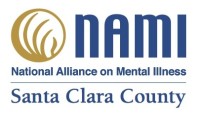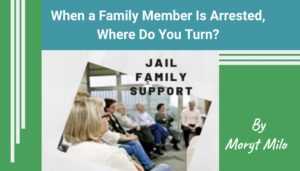When an adult child is arrested, and the underlying issue is due to a mental illness, parents are frightened and have no idea where to turn. Alone, they scramble for information.
There is help, though, through NAMI and its Family Jail Support Group. This monthly group can provide the necessary tools to help families navigate the complex jail system. The facilitators have the contacts and forms needed to make the process easier, and the support network is there to ease a family’s fears.
Kathy Burden and Heidi Alexander, two of the Family Jail Support Group facilitators, understand the emotional toll this takes through their own lived experience navigating the system to help their children.
“When we go through this for the first time, we think we are the only ones,” Burden said. “Families are embarrassed and ashamed. But you can talk about it in our group, because everyone understands.”
Alexander said the benefits of meeting monthly give others an opportunity to support, relate, and share together. “It really does help give us some peace and hope,” she added.
At NAMI’s September general meeting, Burden talked about the importance of completing form AB 1424, which provides the history of a loved one’s health to the authorities at the jail. Even if the authorities can’t update the family about their loved one—unless the individual signs a release of information (RO)—families can speak to them. The other important form is the Family Input Form for the court. This pertains to the individual’s mental health, as well.
Completing this form enables parents to explain that their child has a mental illness and needs to be assigned to the behavioral health court, not the criminal court. Burden points out that the more information the public defender and case workers have, the better they can advocate. Both forms are on the NAMI website.
Today, there are more options than when Burden and Alexander’s family members went through the criminal justice system. There are various diversion tracks that bypass the criminal justice courts. There is Assisted Outpatient Treatment (AOT), crisis mobile teams, and CARE Court coming online next year.
Ideally, Burden said, a family wants to try and be proactive before it reaches crisis level, but there are times this is simply not possible. If the situation becomes dangerous, 911 is the number to call. Ask for a CIT (Crisis Intervention Trained) officer to come out on the call.
Burden and Alexander said a family can try everything to prevent their loved one from being arrested, but sometimes that is the only way to get them help. “We are all frustrated and scared,” Burden said, “but at least in the group you are not alone and there are always tips and hope.”
View the entire discussion about the Family Jail Support Group on the NAMI YouTube Channel. To read more about the Family Jail Support Group, click here. For more information about the Family Jail Support Group which meets at 6 P.M. on the first Wednesday of the month, click on the resource guide.










































